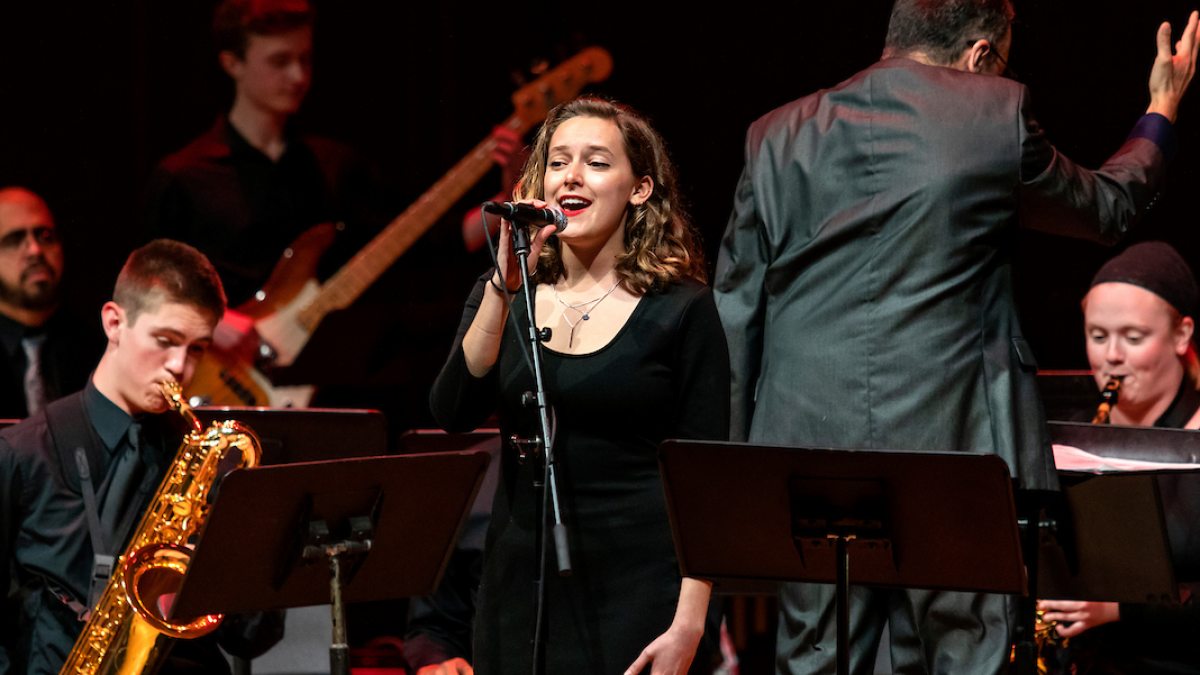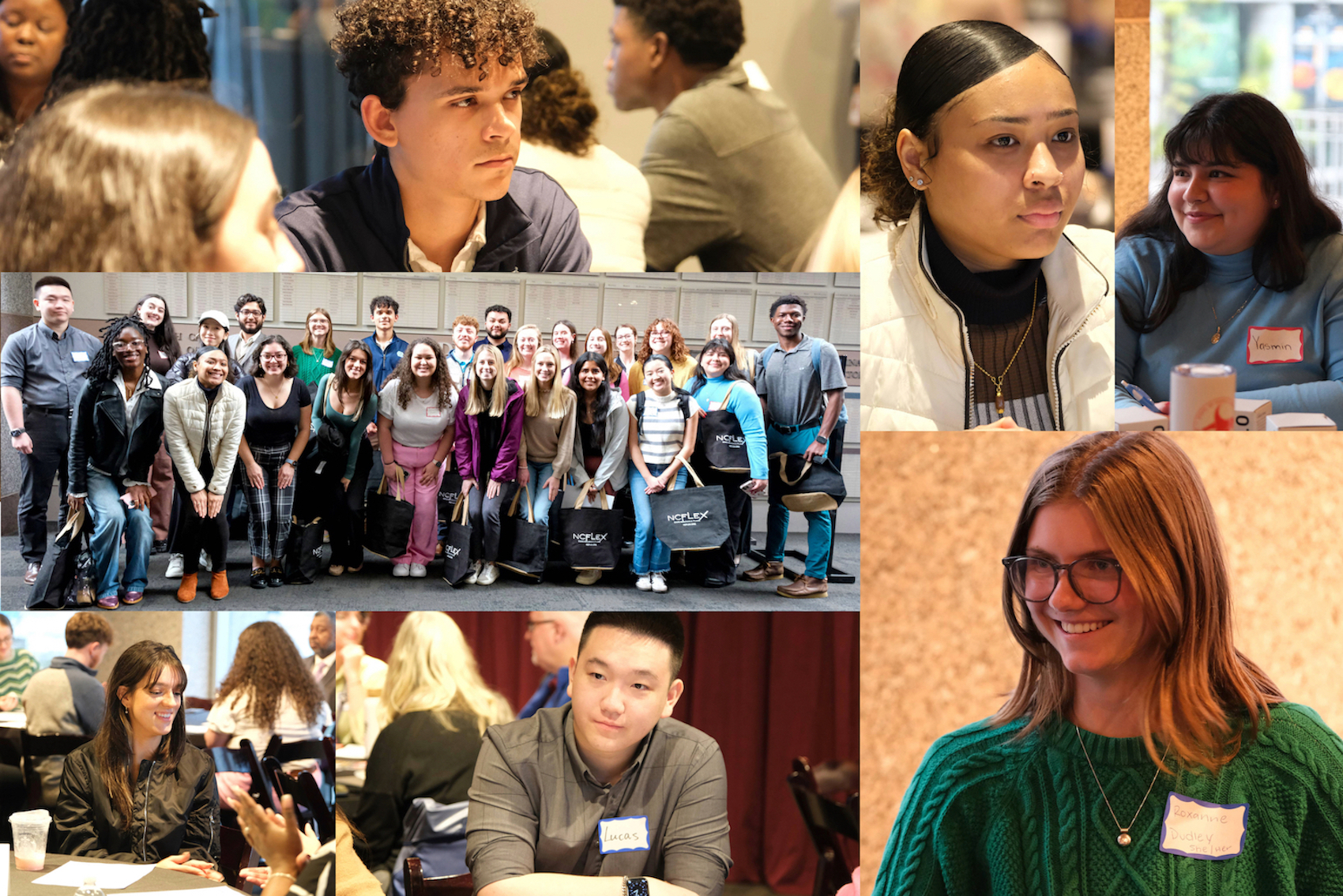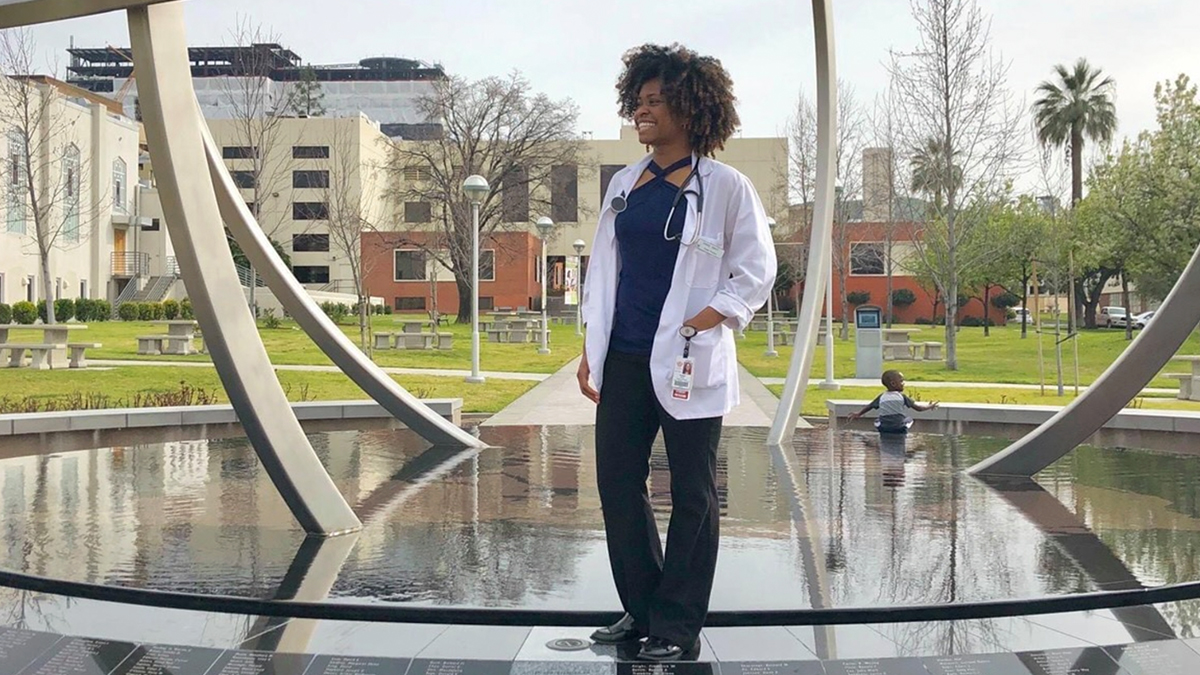Promoting the power of music
The College of Arts & Sciences' music department is celebrating a century of performance and scholarship this year.

When the College of Arts & Sciences first formed its music department, Irving Berlin and George Gershwin were writing popular music. The Louisiana Five, an early jazz band, was advertised as playing “modern jazz.” And Igor Stravinsky had just published the most well-known orchestral suite of “The Firebird” ballet.
The next 100 years brought monumental changes to the world of music, and Carolina’s music department, which began in 1919, changed significantly, too, growing from one faculty member to 40 full-time members in 2019.
Drive and initiative
“It’s grown because of the drive and the initiative of any number of faculty who have brought their expertise and their musical passions to this place,” said Allen Anderson, the chair of the department who teaches courses in composition, theory and analysis.
Examples of that early initiative include adding a doctoral degree in musicology in the 1930s and formalizing the study of instruments.
In the 1960s and 1970s, the department wanted to augment its strong academics by hiring faculty members focused on performance, like a percussionist, trumpeter, flutist, clarinetist or voice instructor. Gradually, a performance program emerged.
Throughout the years, the department continued to add to its offerings. Among these prominent additions was Jim Ketch, who came to Carolina in 1977 and began the jazz program.
‘A huge transformation’
Throughout his four decades at Carolina, Ketch, who teaches the trumpet and directs the department’s jazz studies and who also has served as the department chair, said he has seen a huge transformation.
That includes the department’s physical space, with the construction of the Kenan Music Building in 2008 and the renovation of Hill Hall in 2017.
But it also includes the continued expansion beyond traditional, classical music programs.
Faculty members have led that evolution.
Mark Katz brought hip hop music and beat making. Jocelyn Neal introduced bluegrass. David Garcia established the Charanga Carolina ensemble, which specializes in Cuban danzón and salsa music. Percussionist Juan Àlamo teaches a global rhythms course.
Diverse interests and exceptional quality
This unique combination of diverse research interests is what brings students to the department.
“You get to learn from these people who obviously know so much more than you,” said Amanda Black, a doctoral student researching the effects of tourism on the musical culture in San Miguel de Allende, Mexico.
Every day, faculty members’ award-winning research is being incorporated into the classroom, creating a unique combination of scholarship and performance. Miguel Figueroa, for example, researches how rhythms in the Middle East reflect the political climate there, and students incorporate that lesson into their own creations.
Students have the opportunity to learn about the theories and principles behind the music, and then try it themselves.
“It doesn’t seem like work at a certain point,” said Devin Cornacchio, a Kenan Music Scholar studying cello performance.
Cultural importance
At the root of the department is the focus on promoting the power and importance of music.
“I think music has a way of speaking to the soul in a very unique fashion that I don’t think any other form can,” Ketch said.
Because of the cultural, intellectual and creative importance of music, studying it remains an integral part of education at Carolina, Anderson said.
“A lot of people find that music plays an important part in their lives,” he said. “So it makes sense that to study it at a high level is a valuable part of people’s education, too.”
The milestone of a century, Anderson said, is a time to reflect on the department’s innovative past. But it’s also an opportunity to keep moving forward.
“Let’s keep this energy and the vigor of scholarship, performance and creativity,” he said. “Let’s keep that alive.”




